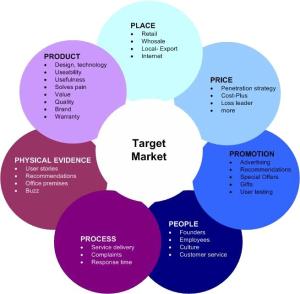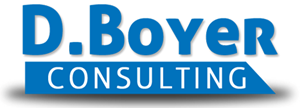Business is mostly conducted via email or phone communications.
Office hours 10:00 a.m. to 6:00 p.m, Mon. - Thurs., and 10:00 a.m. to 2:00 p.m. on Fridays.
SEND EMAIL INQUIRIES DIRECTLY TO:
Dawn.Boyer@me.com
Business is mostly conducted via email or phone communications.
Office hours 10:00 a.m. to 6:00 p.m, Mon. - Thurs., and 10:00 a.m. to 2:00 p.m. on Fridays.
SEND EMAIL INQUIRIES DIRECTLY TO:
Dawn.Boyer@me.com
Business is mostly conducted via email or phone communications.
Office hours 10:00 a.m. to 6:00 p.m, Mon. - Thurs., and 10:00 a.m. to 2:00 p.m. on Fridays.
SEND EMAIL INQUIRIES DIRECTLY TO:
Dawn.Boyer@me.com
Marketing, Advertising, and Branding Definitions
September 29th, 2014 by Dawn Boyer
Getting your definitions straight.

Know your definitions so you can wisely plan your marketing mix with optimum ROI for stakeholders and customers.Some business developers and marketing specialists intermingle marketing-related words without giving thought to semantics and definitions. This may cause confusion when explaining processes related to marketing and business development to investors or stakeholders. Folks within a business know their business and processes, but may not know the differences between marketing and advertising and branding.
Small business owners usually have expectations of ‘instant’ sales from any and all types of marketing efforts. Each marketing-related activities noted below has a different return on investment (ROI) for cost and time. Advertising may bring in a crowd to a local restaurant on a weekend. Branding and business development will create a presence of trust and relationships, increasing customers exponentially over several months because they like the product/service, tell their friends (who trust the source), who in turn visit the restaurant to purchase, providing a higher ROI over time.
Knowing the true definition to distinguish these will assist in defining and explaining processes, procedures, and most importantly expectations. Here’s a list of associated words with descriptions for better understanding.
Marketing Words and Definitions:
Advertising – the act of calling public attention to one’s product, service, via announcements through media (TV, Radio, Magazines), for ROI for response from a target market audience and sales within a short response time.
Selling – to transfer (goods) to or render (services) for another in exchange for money (or equal value bartered exchange); dispose of to a purchaser for a price
Marketing –promoting a company, selling products or services (over time), including market research and advertising activities.
Branding – process involved in creating a unique name and image for a product in the consumers’ mind, mainly through advertising campaigns with a consistent theme over time. Branding aims to establish a significant and differentiated presence in the market that attracts and retains loyal customers.
Business Development – comprises tasks and processes aiming at developing and implementing growth opportunities over time between organizations or to target audiences, providing long-term value for a business with interactions between customers, markets, and building a growth of trust-based relationships.
Public Relations – comprises a spokesperson (or set) that represents the company in promulgating news (PR releases) about the business, special events, or answering questions directly to the press and news media on behalf of the company.
Social Media – interaction between business reps who create, and fans who share or exchange ideas, in virtual communities.
Social Media Management (SMM) – Internet-based management, following, and tracking of platforms enabling people to interact, engage, and collaborate. SMM assists in management of outbound and incoming online interactions – with other small business marketing activities – in an efficient manner. SMM streamlines and consolidates how users listen to and participate in relevant conversations in varied platforms – blogs, social networks, and platforms, within public or private web-based communities.
Social Media Marketing – refers to a process of gaining website traffic or attention through social media sites enabling inbound inquiries for product or service, resulting in outbound sales. The process usually centers on efforts to create content that attracts attention and encourages readers to share it with their own exponential social networks. The resulting Electronic Word Of Mouth (eWoM) refers to consumers that share via the Internet (e.g., web sites, social networks, instant messages, news feeds) about an event, product, service, brand or company. When the underlying message spreads (user-to-user), it presumably resonates because it seemingly comes from a trusted, third party source versus the brand (or company). This form of marketing results in earned media (organic) attention and response instead of (paid) one-way audience reactions.
What to do with the definitions:
Some business representatives may have multiple roles – marketing specialist, business development, and public relations rep, while other internal or external representatives may be vendors providing advertising media for public channels (TV, Radio) or act as social media managers for interactions with fans on SMM platforms. Knowing these terms’ definitions assists entrepreneurs, business developers, and marketing specialists define tasks, projects, and programs, as well as write correctly about dynamics and stages within marketing and business plans.
Dawn Boyer, Ph.D., owner of D. Boyer Consulting – provides resume writing, social media management and training, business development, human resources consulting, and print-on-demand author coaching and consulting. Reach her at: Dawn.Boyer@DBoyerConsulting.com or https://dboyerconsulting.com.
Readers Comments
Marketing, Advertising, and Branding Definitions
September 29th, 2014 by Dawn Boyer
Getting your definitions straight.

Know your definitions so you can wisely plan your marketing mix with optimum ROI for stakeholders and customers.Some business developers and marketing specialists intermingle marketing-related words without giving thought to semantics and definitions. This may cause confusion when explaining processes related to marketing and business development to investors or stakeholders. Folks within a business know their business and processes, but may not know the differences between marketing and advertising and branding.
Small business owners usually have expectations of ‘instant’ sales from any and all types of marketing efforts. Each marketing-related activities noted below has a different return on investment (ROI) for cost and time. Advertising may bring in a crowd to a local restaurant on a weekend. Branding and business development will create a presence of trust and relationships, increasing customers exponentially over several months because they like the product/service, tell their friends (who trust the source), who in turn visit the restaurant to purchase, providing a higher ROI over time.
Knowing the true definition to distinguish these will assist in defining and explaining processes, procedures, and most importantly expectations. Here’s a list of associated words with descriptions for better understanding.
Marketing Words and Definitions:
Advertising – the act of calling public attention to one’s product, service, via announcements through media (TV, Radio, Magazines), for ROI for response from a target market audience and sales within a short response time.
Selling – to transfer (goods) to or render (services) for another in exchange for money (or equal value bartered exchange); dispose of to a purchaser for a price
Marketing –promoting a company, selling products or services (over time), including market research and advertising activities.
Branding – process involved in creating a unique name and image for a product in the consumers’ mind, mainly through advertising campaigns with a consistent theme over time. Branding aims to establish a significant and differentiated presence in the market that attracts and retains loyal customers.
Business Development – comprises tasks and processes aiming at developing and implementing growth opportunities over time between organizations or to target audiences, providing long-term value for a business with interactions between customers, markets, and building a growth of trust-based relationships.
Public Relations – comprises a spokesperson (or set) that represents the company in promulgating news (PR releases) about the business, special events, or answering questions directly to the press and news media on behalf of the company.
Social Media – interaction between business reps who create, and fans who share or exchange ideas, in virtual communities.
Social Media Management (SMM) – Internet-based management, following, and tracking of platforms enabling people to interact, engage, and collaborate. SMM assists in management of outbound and incoming online interactions – with other small business marketing activities – in an efficient manner. SMM streamlines and consolidates how users listen to and participate in relevant conversations in varied platforms – blogs, social networks, and platforms, within public or private web-based communities.
Social Media Marketing – refers to a process of gaining website traffic or attention through social media sites enabling inbound inquiries for product or service, resulting in outbound sales. The process usually centers on efforts to create content that attracts attention and encourages readers to share it with their own exponential social networks. The resulting Electronic Word Of Mouth (eWoM) refers to consumers that share via the Internet (e.g., web sites, social networks, instant messages, news feeds) about an event, product, service, brand or company. When the underlying message spreads (user-to-user), it presumably resonates because it seemingly comes from a trusted, third party source versus the brand (or company). This form of marketing results in earned media (organic) attention and response instead of (paid) one-way audience reactions.
What to do with the definitions:
Some business representatives may have multiple roles – marketing specialist, business development, and public relations rep, while other internal or external representatives may be vendors providing advertising media for public channels (TV, Radio) or act as social media managers for interactions with fans on SMM platforms. Knowing these terms’ definitions assists entrepreneurs, business developers, and marketing specialists define tasks, projects, and programs, as well as write correctly about dynamics and stages within marketing and business plans.
Dawn Boyer, Ph.D., owner of D. Boyer Consulting – provides resume writing, social media management and training, business development, human resources consulting, and print-on-demand author coaching and consulting. Reach her at: Dawn.Boyer@DBoyerConsulting.com or https://dboyerconsulting.com.













